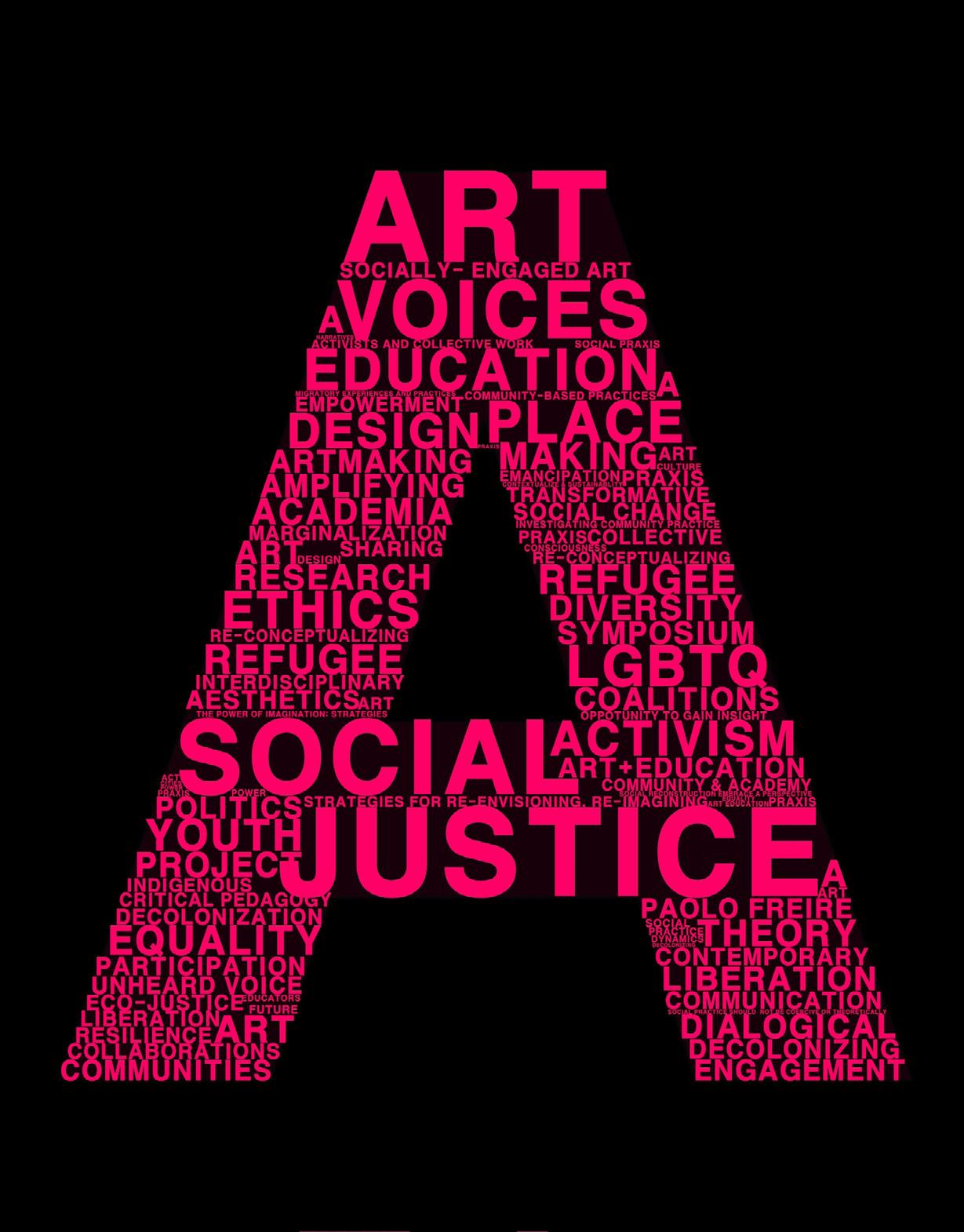
2 minute read
Events: Art + Education for Social Justice Symposium

When worlds come together
Art + Education for Social Justice Symposium
by Lynn Sanders-Bustle and Anna Scheyett
The fight for social justice takes many forms, and on Feb 21-23 of 2020, the University of Georgia explored non-traditional strategies in the tenth Art and Education for Social Justice Symposium (AESJ). A collaboration between the Lamar Dodd School of Art and the School of Social Work, in partnership with Florida State University and supported by the Office of the Provost, the symposium brought together over 140 attendees from across the country and internationally. Participants included artists, art educators, art activists, social art practitioners, community activists, community members, social workers, and theorists.
Leading the planning from the School of Social Work were Assistant Professor and Global Engagement Director Jane McPherson, and Donald L. Hollowell Distinguished Professor and Center for Social Justice Director Llewellyn “Lee” Cornelius. The co-chair from the Lamar Dodd School of Art was Lynn Sanders-Bustle, chair and associate professor of Art Education. Avital Wulz, a Social Work graduate student, conducted podcasts featuring conversations with conference presenters as part of her work with the Center for Social Justice.
The AESJ was deeply committed to involving Athens’ community members and hosted nearly 50 community attendees at a Friday evening community night kick-off event at local theater Cine, which featured six talks and performances by Athens Artists/Activists. McPherson noted “The Friday night community presenters reminded us of how grassroots efforts put into practice much of what we hope for when considering the potential for the arts in the realm of social justice.”
Over the following two days, dozens of presentations illuminated a diverse range of artistic and activist tactics from the field of social work that overlap with art education and higher education. Workshops explored topics from art and justice-involved persons to art murals as a way to heal communities. Presenting artists spoke of the implementation of community-based programs, resilience, the power of participatory collectives, and the healing power of the arts.
The unique format of the symposium, which was designed to foreground a broader conversation outside of academia, proved that a conference in and of itself can function as a site of deep cultural awareness and respect. It highlighted the role visual arts can play in response to local, regional, and transnational challenges, and ways that social work and the arts can work together to make change for social justice.
Four podcasts, featuring interviews with conference speakers, are archived on the Center for Social Justice, Human and Civil Rights Kaltura webpage.
Phillip Brankin – The Georgia Incarceration Performance Project http://bit.ly/PhillipBrankin
Lori Power – Using Theater Strategies in the Academic Classroom http://bit.ly/LoriPower
Laurie Reyman – Stories of Awakening through Art from Conflict Affected Youth http://bit.ly/LaurieReyman
Tanjerine Vie – Artmaking and Tranformative Pedagogies http://bit.ly/TanjerineVie










